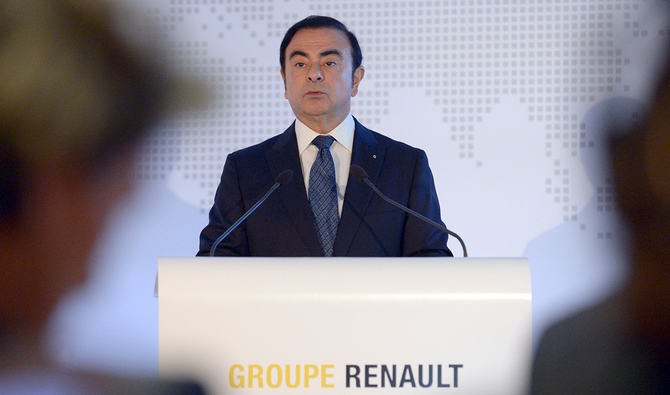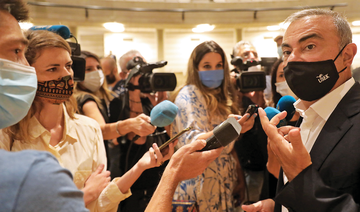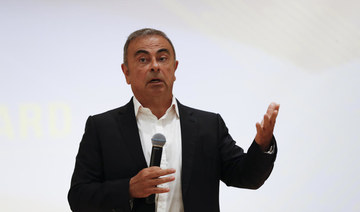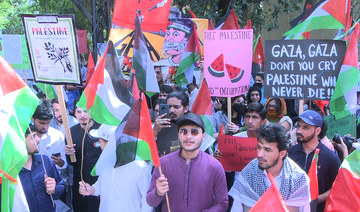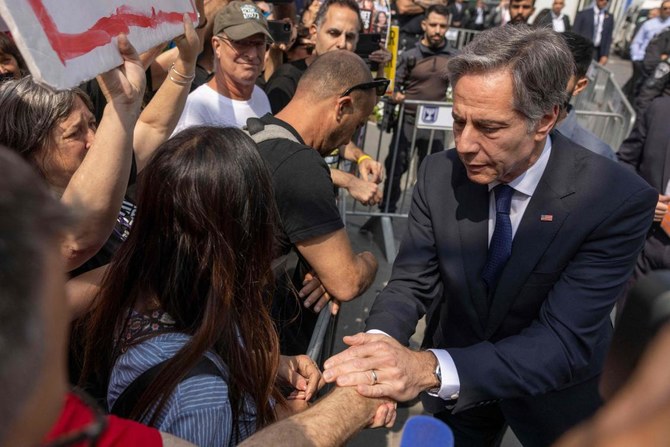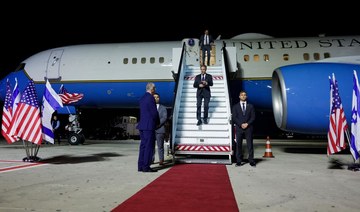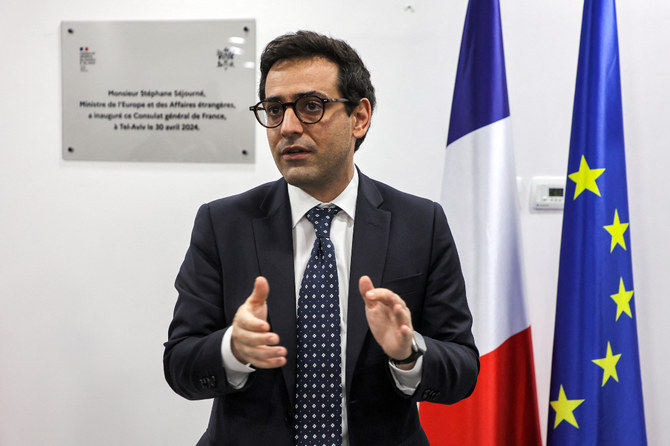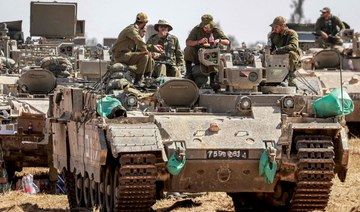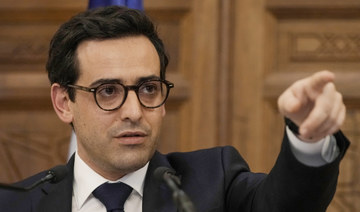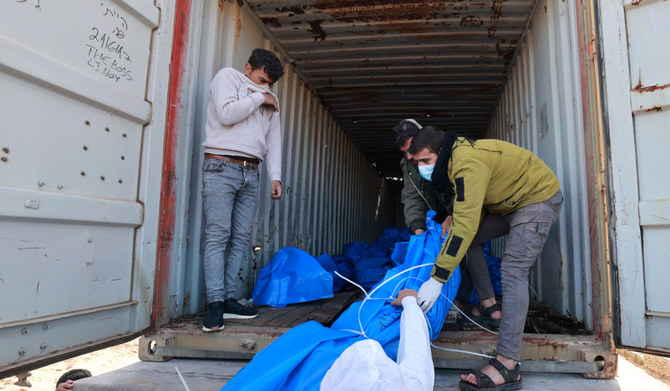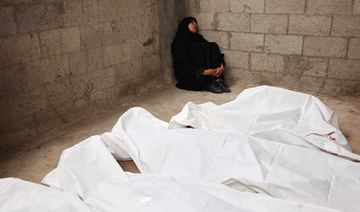JERUSALEM: Top US diplomat Antony Blinken urged Hamas to accept a truce in the Gaza Strip on Wednesday, after Israeli Prime Minister Benjamin Netanyahu vowed to send troops into its far southern city of Rafah.
Washington has heightened pressure on all sides to reach a ceasefire — a message pushed by Blinken, who was on his seventh regional tour since the Gaza war broke out in October.
An Israeli official told AFP the government “will wait for answers until Wednesday night,” and then “make a decision” whether to send a delegation to indirect talks being brokered by US, Egyptian and Qatari mediators in Cairo.
The Palestinian militant group said it was considering a plan for a 40-day ceasefire and the exchange of scores of hostages for larger numbers of Palestinian prisoners.
Hamas, whose envoys returned from Cairo talks to their base in Qatar, would “discuss the ideas and the proposal,” said a Hamas source, adding: “We are keen to respond as quickly as possible.”
Blinken put the ball squarely in Hamas’s court.
“There is a very strong proposal on the table right now. Hamas needs to say yes, and needs to get this done,” he said.
But analysts questioned whether Hamas would sign up to another temporary ceasefire like the week-long truce that saw more than 100 hostages released in November, knowing that Israeli troops could resume their onslaught as soon as it was over.
“I’m pessimistic about the option of Hamas agreeing to a deal that doesn’t have a permanent ceasefire baked into it,” said Mairav Zonszein, senior analyst on Israel-Palestine at the International Crisis Group.
Zonszein said the three countries brokering the truce talks had their own reasons for trying to bounce the warring parties into a deal.
“The US and Egypt and Qatar all have very strong interests of their own, for various reasons, why they’re trying very hard now to pressure both sides into agreeing to a deal.
“And I think they believe that if they’re able to get an initial deal and a pause, that they can try to build on that,” he said.
Potential Rafah incursion
Hours before Blinken landed in Tel Aviv, Netanyahu fired a shot across his bows, vowing to send Israeli ground troops into Rafah despite repeated US warnings of the potential for heavy casualties among the 1.5 million civilians sheltering in the city.
“We will enter Rafah and we will eliminate the Hamas battalions there with or without a deal,” the right-wing premier told hostage families, his office said.
Ahead of what promised to be a difficult meeting with Netanyahu in Jerusalem, Blinken too met privately with hostage relatives in Tel Aviv.
In rare scenes for the top US diplomat, who has faced furor at home and abroad over the administration’s support for Israel in its campaign against Hamas, Blinken was greeted outside his Tel Aviv hotel by Israeli demonstrators waving US flags.
Blinken told them that freeing the hostages was “at the heart of everything we’re trying to do.”
The estimates that 129 Israelis remain captive in Gaza, 34 of whom are presumed dead.
Many of their families have expressed hope that US pressure may force Netanyahu to agree a deal for their release.
Mideast tour
On the previous leg of his regional tour in Jordan, Blinken said a Gaza truce and the redoubling of aid deliveries went hand in hand.
A truce is “the most effective way to relieve the suffering” of civilians in Gaza, he told reporters near Amman.
Blinken saw off a first Jordanian truck convoy of aid heading to Gaza through the Erez crossing reopened by Israel.
“It is real and important progress, but more still needs to be done,” he said.
UN agencies have warned that without urgent intervention, famine looms in Gaza, particularly in northern areas which are hardest to reach.
A US-built floating pier on Gaza’s coast is expected to be completed later this week, said Cyprus, the departure point for the planned “maritime corridor.”
Blinken said the pier would “significantly increase the assistance” but was not “a substitute” for greater overland access.
In northern Gaza’s Beit Lahia, across from Erez crossing, 24-year-old farmer Yussef Abu Rabih was replanting plots he said had been “completely destroyed” by the fighting.
“We decided to return to farming despite difficult conditions and scarce resources” after suffering “severe hunger,” he told AFP.
Gaza war
The war started after Hamas’s October 7 attack on southern Israel resulted in the deaths of 1,170 people, mostly civilians, according to an AFP tally of Israeli official figures.
Israel’s retaliatory offensive has killed at least 34,568 people in Gaza, mostly women and children, according to the health ministry in the Hamas-run territory.
Washington has strongly backed its ally Israel but also pressured it to refrain from a ground invasion of Rafah, which is packed with displaced civilians.
Calev Ben-Dor, a former analyst for the Israeli foreign ministry and now deputy editor for specialized review Fathom, told AFP that Netanyahu’s “Rafah comments likely have more to do with trying to keep his coalition intact, rather than operational plans in the near term.”
The prime minister “is feeling the squeeze between the Biden administration” and far-right members of his government who have vehemently opposed the proposed truce, Ben-Dor said.
UN chief Antonio Guterres said an Israeli assault on Rafah would “be an unbearable escalation, killing thousands more civilians and forcing hundreds of thousands to flee.”



